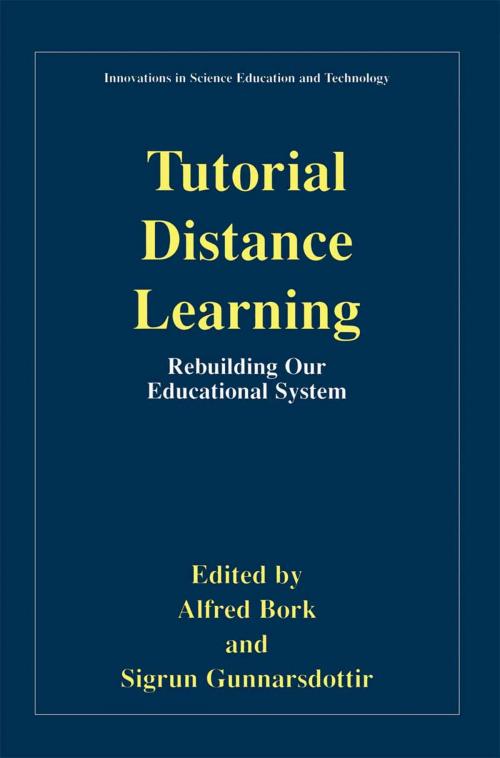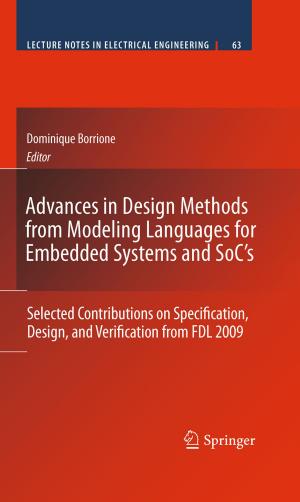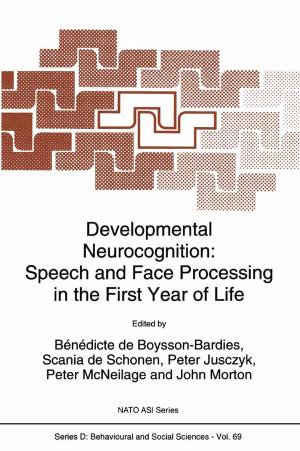Tutorial Distance Learning
Rebuilding Our Educational System
Nonfiction, Science & Nature, Science, Other Sciences, Study & Teaching, Reference & Language, Education & Teaching, Teaching, Computers & Technology| Author: | Alfred Bork, Sigrun Gunnarsdottir | ISBN: | 9789401006361 |
| Publisher: | Springer Netherlands | Publication: | December 6, 2012 |
| Imprint: | Springer | Language: | English |
| Author: | Alfred Bork, Sigrun Gunnarsdottir |
| ISBN: | 9789401006361 |
| Publisher: | Springer Netherlands |
| Publication: | December 6, 2012 |
| Imprint: | Springer |
| Language: | English |
Learning is a critical worldwide problem for humans, essential to create a peaceful and happy world. We have serious problems in learning in both wealthy and poor areas. New approaches to learning are needed, as the current system may not rise to the new challenges.
This book proposes a new strategy for learning, worldwide and for all ages of students. Computer-based distance learning would be the major delivery mechanism, with very large numbers of students. The very frequent interactions between the student and the computer would be like that with a skilled human teacher. These interactions would take place in the student's native language, in both directions. A typical interaction would be a question to a student, and a free-form student response. Both voice and keyboard student input would be possible. The learning programs would work with each student until mastery is achieved, adapting to the needs of each. Students would be active learners.
The book begins with the problems and goals of learning. It considers possible forms of distance learning, looking at the variables involved, current examples of distance learning, and possible future forms including examples from science fiction. It then investigates student interactions, considering both frequency of interactions and the quality of each interaction. Programs developed in the Educational Technology Center at the University of California, Irvine, illustrate the critical idea of tutorial learning with computers. Production of tutorial learning material and costs for a student hour of learning is discussed. The book ends with suggestions for future progress.
Current hardware and software is fully adequate for the tasks described. Development of all required learning units is a major activity. After this development, both better quality of learning and lower costs are very likely. Further experimental work is essential to understand the possibilities.
Learning is a critical worldwide problem for humans, essential to create a peaceful and happy world. We have serious problems in learning in both wealthy and poor areas. New approaches to learning are needed, as the current system may not rise to the new challenges.
This book proposes a new strategy for learning, worldwide and for all ages of students. Computer-based distance learning would be the major delivery mechanism, with very large numbers of students. The very frequent interactions between the student and the computer would be like that with a skilled human teacher. These interactions would take place in the student's native language, in both directions. A typical interaction would be a question to a student, and a free-form student response. Both voice and keyboard student input would be possible. The learning programs would work with each student until mastery is achieved, adapting to the needs of each. Students would be active learners.
The book begins with the problems and goals of learning. It considers possible forms of distance learning, looking at the variables involved, current examples of distance learning, and possible future forms including examples from science fiction. It then investigates student interactions, considering both frequency of interactions and the quality of each interaction. Programs developed in the Educational Technology Center at the University of California, Irvine, illustrate the critical idea of tutorial learning with computers. Production of tutorial learning material and costs for a student hour of learning is discussed. The book ends with suggestions for future progress.
Current hardware and software is fully adequate for the tasks described. Development of all required learning units is a major activity. After this development, both better quality of learning and lower costs are very likely. Further experimental work is essential to understand the possibilities.















